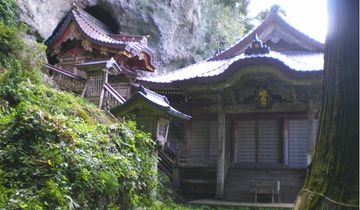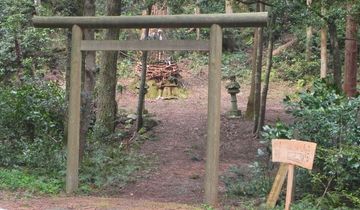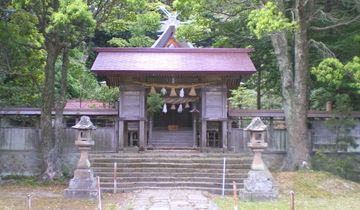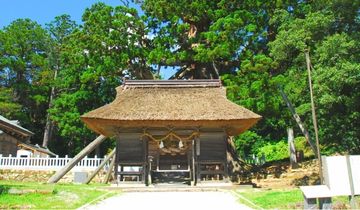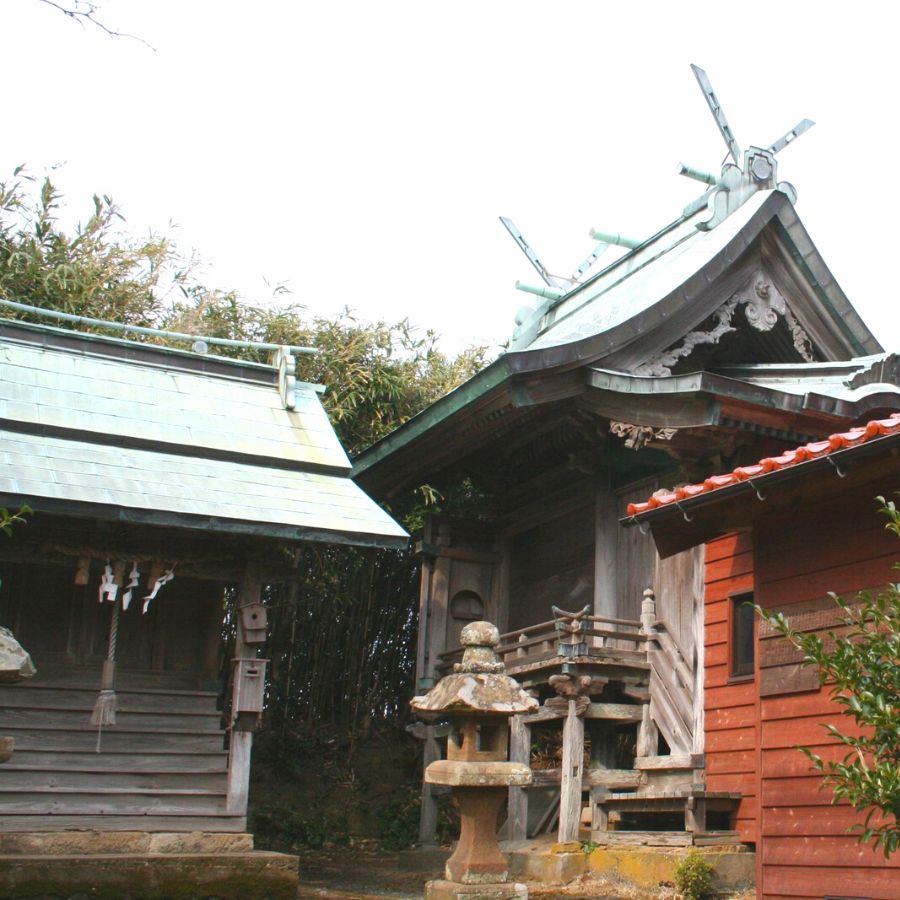
Lifestyles and Traditions - Shrines
Details of the origin of the shrine are unknown, but in the "List of Deities of Dōzen Villages," the enshrined deities are Himemiya-daimyōjin and Yamatohime-no-mikoto. The same information was also recorded in the Inshū Fudoki (the geographical directory of Oki Province) of 1833. According to a list of deities owned by Saigō Ume-no-sha, the deities are Himemiya-daimyōjin and Yamatohime-no-mikoto (Toyotama-hime, Tamayori-hime, both goddesses in Japanese mythology) of junior fourth rank. According to legend, the shrine is renowned for the power to fulfill the wishes of worshippers for mother's milk.
Toyotama-hime and Tamayori-hime are daughters of Watatsumi, the deity of the sea. Tamayori-hime married Hōri-no-Mikoto, also known as Yamasachi-hiko, the offspring of Ninigi-no-Mikoto (grandchild of Amaterasu) and Konohanasakuya-hime (offspring of Ōyamatsumi), and gave birth to Ugayafukiaezu-no-Mikoto.
There are some Jōmon prehistoric sites and tunnel tombs from the Kofun period (c. 250–538) near the shrine, which suggests that people have been living here since ancient times. The area where the shrine is located faces the Dōzen inland sea, and the other two Dōzen Islands are within easy access of the area. Among the burial accessories unearthed from the corridor-type burial mounds, there is Yamato-style pottery, which suggests that the chief held strong power and a wide range of exchanges were carried out.


